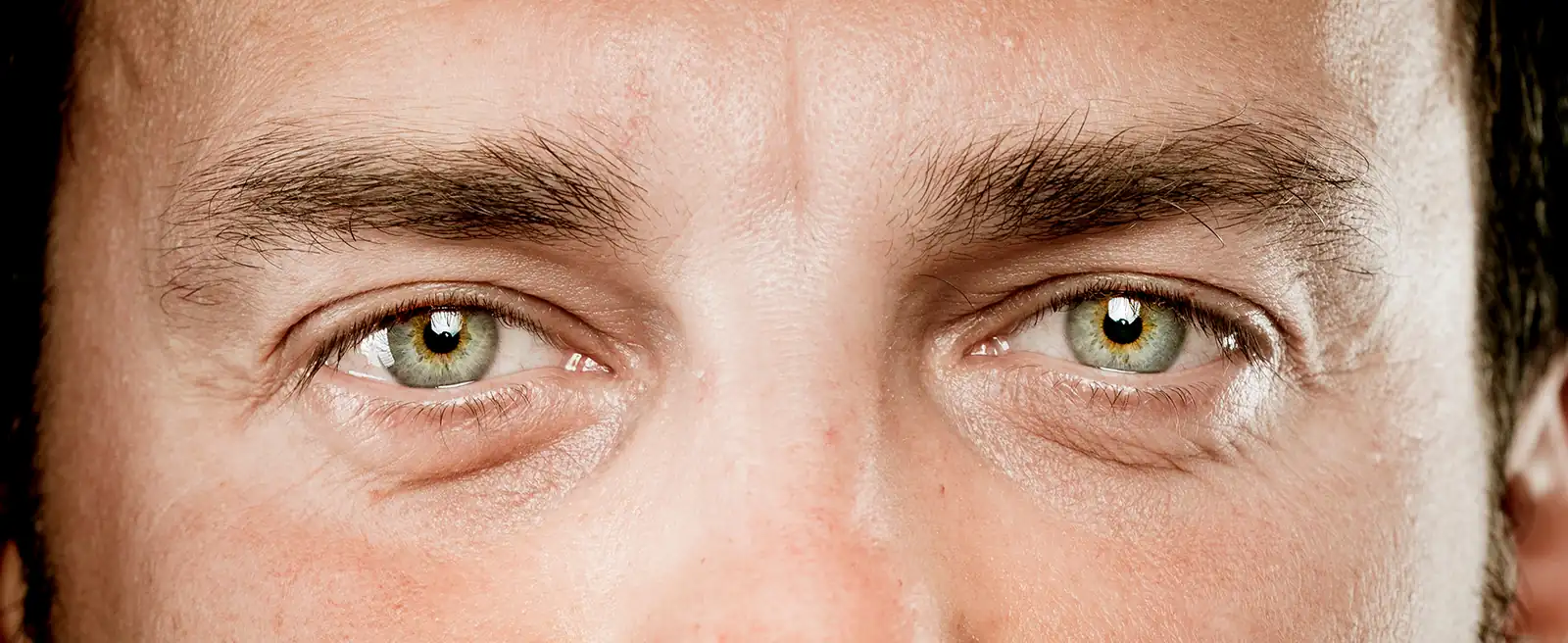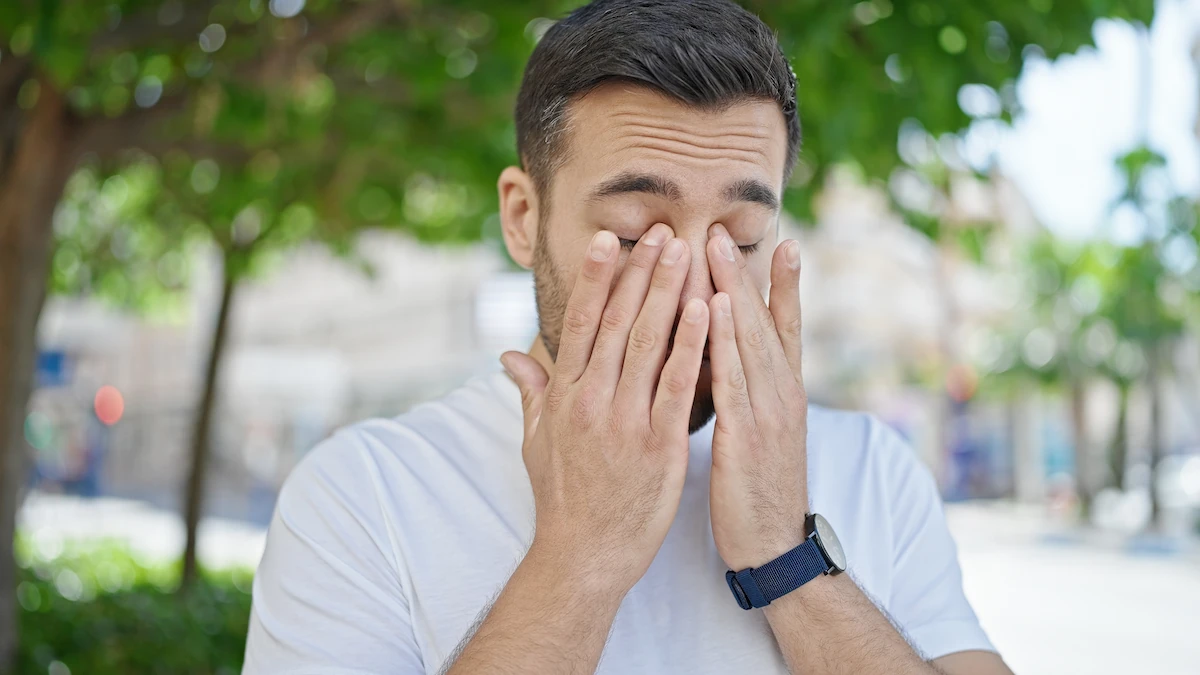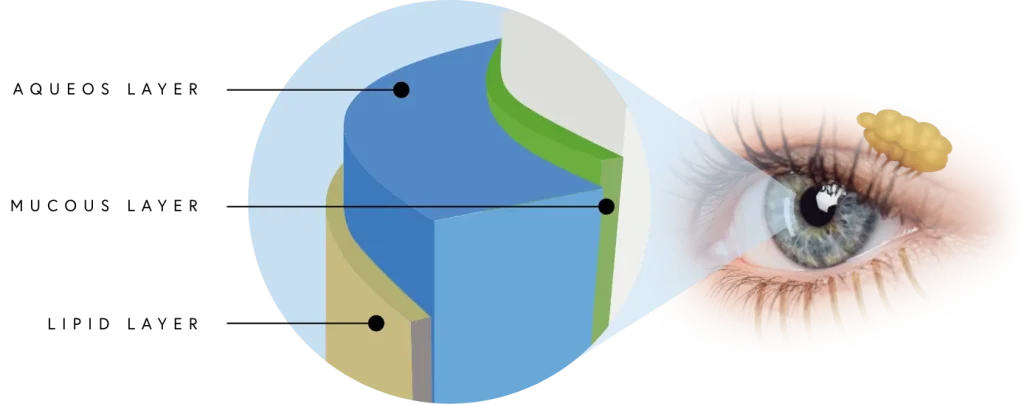What is Dry Eye Syndrome?
Dry Eye Syndrome (DES) is characterized by a poor or insufficient tear film covering the front of the eye. This can be due to either a lack of tears or, more commonly, unhealthy tears. The tear film is the first surface that light hits when it enters the eye, so any disruption of this surface can cause blurry or distorted vision. Often times patients with dry eye disease report blurry vision that improves with blinking.
Dry eye can cause burning, tearing, redness, itching, or sensitivity to light. These symptoms can be exacerbated by contact lens wear or allergies. Dry Eye Syndrome may also coexist with other eye conditions, such as blepharitis, or inflammation of the eyelids. This means treating dry eye may be different for each patient, as the cause and other associated conditions may vary. That’s why it’s important to have a comprehensive eye exam to determine the best treatment plan for you.

What causes Dry Eye Syndrome?
Dry eyes can be caused by underlying systemic conditions as well as external environmental factors. Many patients don’t realize that certain activities they do every day or certain medications they take are actually the main contributors to their symptoms. While not all of these causes can be changed or eliminated, it helps to understand the factors involved to implement the most tailored treatment approach.
Jennifer Aniston Chats about Dry Eye
Some Common Contributors to Dry Eye Syndrome Include:
- Computer use or prolonged reading
- Poor contact lens permeability
- Environmental allergies
- Cigarette smoke
- High caffeine intake
- Low water intake
- Older than age 50
- Diabetes
- Autoimmune conditions, including rheumatoid arthritis or lupus
- Decongestants and antihistamines
- Acne medications
- Diuretics
- Certain eye drops, including redness reducers
- Hormonal changes and menopause

"Not only the best eye doctors, but also the best medical office I’ve been to. Doctors and staff are all top notch. Friendly, energetic, knowledgeable, efficient, patient, caring, effective. I wish my other doctors offices were this good."
What is the Tear Film?
The tear film of the eye is made up of three layers, and each has an important job. A deficiency in any of these layers may contribute to dry eye disease.
- The innermost mucin layer helps to anchor the tears to the ocular surface and is produced by goblet cells in the conjunctiva. Vitamin A deficiency and certain systemic conditions can lead to a destruction of goblet cells and resulting dry eye.
- The middle aqueous layer is produced by the lacrimal gland and provides the bulk of the tears. This is what gives the tears their watery characteristic. When this layer is lacking, it is called aqueous-deficient dry eye. Treatment is aimed at increasing tear production.
- The outer lipid layer keeps the tears from evaporating and comes from the meibomian glands in the eyelids. Oftentimes these oil glands can become clogged, which leads to evaporative dry eye. Treatment in this case is aimed at opening the oil glands and increasing the production of meibum.

Dry Eye Treatment in Houston
The doctors at Diagnostic Eye Center will fully evaluate all components of your dry eye during your comprehensive exam to make the best recommendation for you. Certain treatments may be preferred depending on the type and severity of your dry eye.
Treatment options for dry eye syndrome include:
- Aqueous-based or lipid-based artificial tears
- Ophthalmic ointments or gel drops
- Anti-inflammatory or steroid eye drops
- Omega-3 supplements
- Cyclosporine eye drops, such as Restasis or Cequa
- Other prescription dry eye drops, such as Xiidra
- Warm compresses
- Lid hygiene, including lid scrubs or hypochlorous acid treatments
- Punctal plugs
- Punctal cauterization
- Medication cessation or adjustment
- Polarized sunglasses
- Change in contact lens modality or solution
 It is important to remember that eye health can be reflective of overall systemic health. Additional lifestyle modifications may be recommended, such as smoking cessation or increased water consumption.
It is important to remember that eye health can be reflective of overall systemic health. Additional lifestyle modifications may be recommended, such as smoking cessation or increased water consumption.
If dry eyes are getting in the way of your everyday life, stop suffering! Contact us to schedule your comprehensive dry eye evaluation with one of our Houston eye doctors at Diagnostic Eye Center.
The doctors at Diagnostic Eye Center have reviewed and approved this content.


